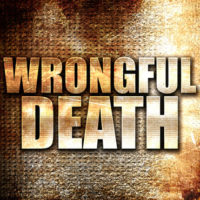The Basics of Wrongful Death Actions

The bridge collapse at Florida International University was a tragic catastrophe in a number of ways, especially the premature deaths of six individuals. While accidents do happen, if the accident was preventable, responsibility can be assigned to either individual persons or business entities. If injury occurred as a result of the accident, those persons or entities responsible are most likely held to hold some legal liability, which is typically determined in a personal injury lawsuit for negligence. But, when the injury results in death, a different type of lawsuit is filed – the wrongful death action. Recently, the family of one of the victims of the collapse filed a wrongful death action against the builders of the bridge. This is the second wrongful death action that has been filed, and it is reasonably safe to assume that the families of the other four deceased individuals will also file wrongful death actions. A brief explanation of wrongful death actions, and who may file them, will follow below.
What Is Wrongful Death?
The phrase “wrongful death” refers to a legal cause of action that can be instituted when an individual or entity wrongfully causes the death of another individual. Governed by state statute, wrongful death laws allow civil lawsuits to be filed on behalf of a deceased individual, who is no longer alive to institute the action on his/her own accord. These actions can only be filed by certain persons, as set forth in the statute. Because a wrongful death action is a civil matter, the standard of proof needed to hold the defendant responsible is less than that required for a criminal conviction. Specifically, the plaintiff must prove fault by a preponderance of the evidence, which means it is more likely than not that the individual or entity caused the deceased individual’s death.
When someone experiences the loss of a loved one, that person, the plaintiff, must show that the defendant wrongfully caused the death of the loved one. This involves proving negligence on the part of the defendant, meaning the plaintiff must show that:
- the defendant owed a legal duty to the deceased individual;
- the defendant failed in exercising that duty;
- due to the defendant’s failure, the loved one was wrongfully killed; and
- the deceased individual’s estate and beneficiaries suffered a loss as a result.
Available Damages and Who May Recover
Once negligence is established, the next issue focuses on the amount of damages a plaintiff may recover. In wrongful death actions, there are generally two types of damages – those available to survivors and those available to the deceased individual’s estate.
Survivors are typically defined as the deceased individual’s spouse, children, parents, and, in some situations, other dependent relatives. With regard to children born outside of marriage, they would only be recognized as children of their father if he established paternity (children born outside of marriage are always recognized as children of their mother). Generally, survivors may be able to recover reimbursement for medical or funeral expenses, as well as compensation for lost support and services of the deceased. Additionally, a surviving spouse may recover damages for loss of companionship and protection, as well as for mental pain and suffering. Further, children under 25 (or all children, if there was no surviving spouse) can seek damages for loss of parental companionship, as well as for mental pain and suffering. If the deceased is a child, his/her parents may recover mental pain and suffering.
In addition to damages available to survivors, the deceased individual’s estate may recover lost earnings of the estate and medical or funeral expenses paid by the estate.
Seek Legal Advice
Losing a loved one is probably the hardest thing a person will experience in his/her life, and if the loss came as the result of an avoidable and negligent accident, it can be even more traumatic. If you are in this situation, engage the services of an attorney experienced in wrongful death matters. The lawyers at Pita Weber Del Prado are here to help you. We have the experience to determine whether your loved one’s death is the result of negligence, and, if so, will get you the compensation you deserve. Contact our Miami office today for an initial consultation.
Resources:
miamiherald.com/news/local/community/miami-dade/article207518474.html



